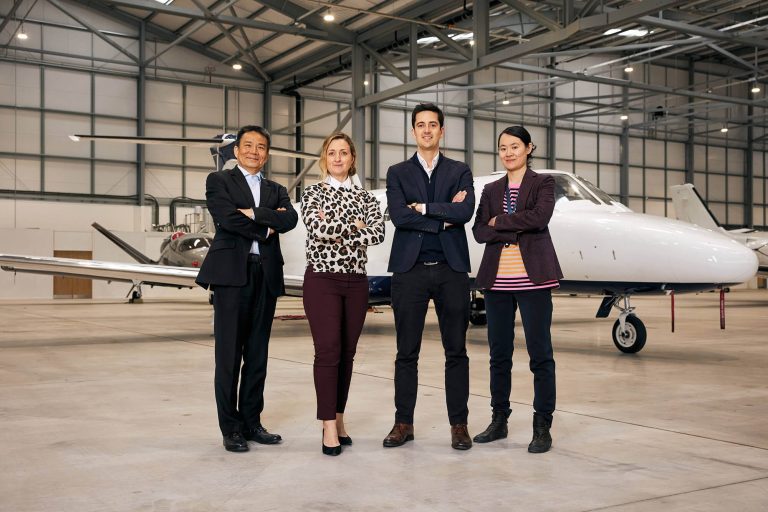OXCCU, a leading carbon-to-value company converting carbon dioxide and hydrogen into industrial and consumer products, has won a £2.8 million grant along with the University of Sheffield Translational Energy Research Centre (TERC) and SUSTAIN Fuels. The capital will be used to demonstrate the world’s first direct carbon dioxide (CO2) hydrogenation process, turning CO2 directly into aviation fuel range hydrocarbons, also known as sustainable aviation fuel (SAF).
The project presents a novel approach to SAF production, directly converting CO2 and hydrogen (H2) to hydrocarbons – essentially creating jet fuel from thin air. OXCCU technology means that this traditionally multi-step process has been simplified to just a single step. A truly British innovation, the reactor will be located at the TERC and fed with biogenic CO2 captured from biomass combustion and H2 produced on site from electrolysis using green electricity. The fuel is then blended via SUSTAIN Fuels to produce a fuel of Jet A-1 specification.

As part of its aim to cement the UK’s status as a world leader in SAF, last month the UK Government announced new measures to support the industry, with a revenue certainty scheme to boost uptake and help create jobs. The Government has committed to having at least five commercial SAF plants under construction in the UK by 2025, viewing low or zero emission technologies as key to sustainability and net zero targets.
Aviation still needs hydrocarbons but to achieve net zero, they need to be created without the use of fossil fuels. Traditional biofuels have well-known issues with scale due to limited feedstocks. In contrast, e-fuels or synthetic fuels based on CO2 have enormous potential to scale with fewer feedstock constraints but face challenges due to cost. OXCCU’s patented technology consolidates the traditional e-hydrocarbons production process from two-steps, Reverse Water Gas Shift (RWGS) then Fischer-Tropsch, to a one-step direct hydrogenation process. This offers a radically cost-effective solution and opens up intriguing opportunities for the future of commercial aviation.

OXCCU CEO Andrew Symes said: “We’re proud to be part of the UK’s journey to cement itself as a leader in clean aviation and to help scale world-first technologies in sustainable aviation fuel. This new investment from the AFF will be a welcome contribution to our efforts to help the industry meet the high targets it has set.”
Available to customers as OXEFUEL, OXCCU’s sustainable aviation fuel is created by combining captured carbon dioxide and renewably-sourced green hydrogen through a novel iron-based catalyst, resulting in a more cost-effective and decarbonized alternative to fossil-based Jet A fuel for commercial airlines. Modelling completed by independent researchers from Imperial College London, through Imperial Consultants, has shown OXCCU’s one-step process significantly reduces SAF cost due to higher selectivity yield in the jet fuel range and a 50% lower capital cost.

As well as providing fuel blending expertise, SUSTAIN Fuels will also be providing training on analysis and quality control. David Richardson, head of business development at SUSTAIN Fuels, said: “This is a very exciting project and its potential is far reaching. We have collaborated with aviation work groups for many years, and this OXCCU technology feels like a fantastic leap in the right direction. At SUSTAIN Fuels, our mission is to work towards de-fossilising the transport sector and this project could potentially, in the future, have implications for many sectors beyond aviation. Given the urgency of tackling the issue of achieving net zero, that can only be a good thing.”
Professor Mohamed Pourkashanian, Managing Director of the Translational Energy Research Centre, said of the project: “We are thrilled to be hosting this innovative piece of technology at the Translational Energy Research Centre. One of the most exciting elements of our centre is our ability to host equipment from our partners for vital research and development, and utilising our on-site hydrogen and biogenic CO2 production capabilities for this project means we are really delivering on a circular, sustainable way to test new solutions for industrial decarbonisation.”







